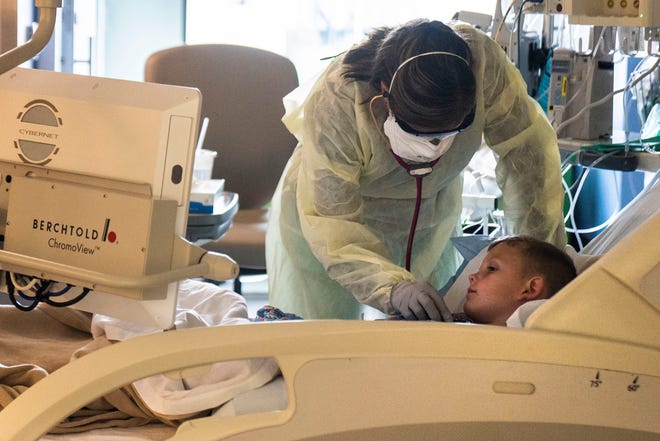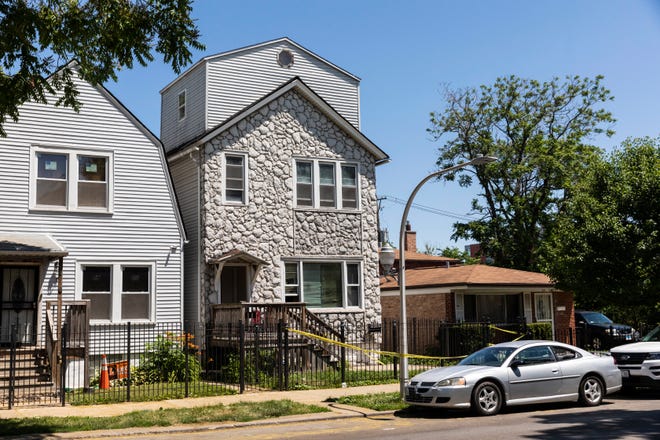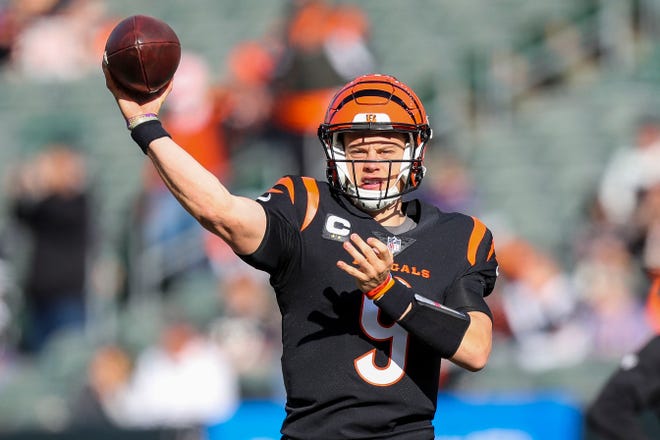
- The Pfizer-BioNTech COVID vaccine could become available for children ages 5 to 11 as soon as next week.
- Serious COVID-19 infections have been rare among the 28 million American children ages 5-11.
- Younger children will be given a Pfizer-BioNTech vaccine dose one-third as large as the dose given to those over 12, to minimize side effects while maintaining effectiveness.
The evidence supporting COVID-19 vaccines in adults is clear. In August, an unvaccinated adult was six times more likely to test positive and 11 times more likely to die from COVID-19 than someone who was vaccinated.
The story, though, isn't as clear-cut with children ages 5 to 11, according to data presented Tuesday by the Food and Drug Administration and the Centers for Disease Control and Prevention.
After listening for hours to government experts and officials from Pfizer-BioNTech, an advisory panel to the FDA concluded the benefits of vaccination outweigh the risks for this age group.
A similar discussion will take place next week at an all-day meeting of a CDC advisory panel. If they sign off, along with FDA and CDC officials, as seems likely, vaccines could become available for children ages 5 to 11 as soon as the middle of next week.
How does COVID-19 affect me? Don’t miss an update with the Coronavirus Watch newsletter
That means parents are likely soon to be faced with a choice: Would they rather take the small chance of their child falling seriously ill from COVID-19, or the even smaller chance that they will be harmed by the shots intended to protect against it?
To help with that decision, USA TODAY has summarized the data presented to the FDA panel, including what is known and what remains unknown.
Even without vaccination, it's possible to protect children by wearing masks indoors and vaccinating the adults in their lives, CDC Director Dr. Rochelle Walensky said at a White House briefing Wednesday.
COVID-19 in younger children
Serious COVID-19 infections have been rare among the 28 million American children ages 5-11.
According to one study, as many as 42% of children in this age group have been infected since the start of the pandemic, leading to more than 8,000 hospitalizations and just under 100 deaths.
Cases in children spiked this summer, because of the delta variant, though children do not appear to be getting sicker from this variant than from others.

Although at substantially lower rates than in adults, children ages 5-11 can also suffer from lingering symptoms of COVID-19 infections – including monthslong fatigue, pain, headaches, insomnia and trouble concentrating.
All children, regardless of age, can catch and pass on COVID-19, a recent Harvard study confirmed.
It's also become clear over the past year how important it is to keep children in school, and vaccinating kids would undoubtedly reduce the number of school closures, which have kept more than 1 million children away from their classrooms this fall.
In the 2019-2020 flu season, considered a bad year for the virus, 107 children ages 5 and older died of flu. More children have been hospitalized with COVID-19 than were hospitalized with flu in 2017-2018. Millions of parents choose to vaccinate their kids against flu to protect them and elders.
Pfizer, Moderna and Johnson & Johnson:Comparing the COVID-19 vaccines
Risks of vaccination for kids 5-11
Every vaccine brings some risks.
In this case, the risks are theoretical. None of the roughly 5,000 children who received the Pfizer-BioNTech vaccine in clinical trials suffered a serious side effect tied to the shots, according to company data reviewed by the FDA.
Those who oppose vaccination in kids, who flooded the inboxes of advisory panel members last weekend, argued vaccines are unnecessary in this age group, because so few children have been seriously harmed by their COVID-19 infection.
Benefits of COVID-19 vaccination
Pfizer-BioNTech's COVID-19 vaccine is clearly effective in children 5-11, preventing more than 90% of infections, according to one study in about 2,500 children.
The vaccine appears to be safe, with most side effects in line with those experienced by adolescents and adults, including temporary pain at the injection site, headache, fatigue and low-grade fevers.
Younger children will be given a Pfizer-BioNTech vaccine dose one-third as large as the dose given to those over 12, to minimize side effects while maintaining effectiveness.
The only member of the Vaccines and Related Biological Products Advisory Committee to abstain from the vote, Dr. Michael Kurilla, expressed concern in a later statement about the duration and strength of protection.
Children in the trial were only followed for a few months, he noted, and since at least half of children in this age group see no symptoms when infected with COVID-19, he thought the studies overestimated the risk of infection and therefore the benefit of vaccination.

What we still don't know
There remain unanswered questions about how children ages 5-11 will respond to vaccines:
What about rare side effects? Pfizer-BioNTech's safety trials included about 5,000 children, which is not enough to identify rare side effects.
The potential side effect of greatest concern is called myocarditis, a swelling of the heart muscle that can also be caused by COVID-19. Myocarditis after vaccination has been seen mainly in adolescents and young adults, mostly male, after their second dose of vaccine.
Out of every million 16- and 17-year-old boys who have been vaccinated, 69 have developed the condition, compared to just two out of every million men in their 40s. None has died.
Tracking COVID-19 vaccine distribution by state:How many people have been vaccinated in the US?
Myocarditis is more common generally in older teenagers and young adults and lower in the 5- to 11-age group, but it's not clear whether that would be true if caused by the vaccine.
"We're worried about a side effect that we can't measure yet, but it's probably real," said committee member Dr. Eric Rubin, editor-in-chief of the New England Journal of Medicine and an infectious disease expert at Brigham and Women's Hospital and the Harvard T.H. Chan School of Public Health.
"We're never going to learn how safe it is until we start giving it," he added.

What about long-term effects and benefits? As with adults, vaccines in children are unlikely to cause long-term health effects not seen within the first weeks after the shots. In one of two studies, children were followed for an average of two months; in the other, just a few weeks so far.
The Pfizer-BioNTech vaccine, like the one from Moderna, triggers the body to produce a harmless protein found on the surface of the virus that causes COVID-19, so the immune system will recognize it and respond if it sees the complete virus.
This production does not last long and the messenger RNA used to deliver the vaccine does not stick around long or get into the cell nucleus where the DNA is stored, so it cannot make fundamental changes to the cell's activities.
As with the adult vaccines, it's unknown how long a COVID-19 vaccine will protect a child ages 5 to 11 against infection or whether boosters will be needed.
Committee member Dr. Paul Offit said he always wishes he had more information, but felt he had enough in this case to decide in favor of vaccinations.
"It's always nerve-wracking when you're asked to make a decision for millions of children based on studies of only a few thousand," said Offit, an infectious disease expert at The Children’s Hospital of Philadelphia. "For me, I think I know enough to move forward with a 'yes' vote."
Other factors to consider for parents
Infection rates:An FDA analysis of the vaccine's safety and effectiveness in kids concludes that the benefits outweigh the risks until infection rates fall below 5% of those at their height in September.
Infection rates are falling right now throughout most of the country, but is not clear whether they will climb again with the winter (respiratory viruses like COVID-19 tend to increase in winter) or whether a new variant will pop up that will make vaccination more important.
Previous infection: A child who has already been infected with COVID-19 carries some protection against the virus and is less likely to fall seriously ill. Generally, a vaccine provides more predictable protection than infection, but an infection may offer broader protection against variants, studies in adults have shown.

A child's vulnerability: Children who are immunocompromised or have health issues like obesity and metabolic disease are at higher risk for serious cases. Two-thirds of children hospitalized for COVID-19 have had preexisting health conditions. A child in this category may benefit more from vaccination than a healthy child.
Also, children of color – Black, brown or Native American – have been hospitalized at three times the rate of white children, CDC epidemiologist Fiona Havers told the committee Tuesday. Perhaps because of their family's exposures and their own health risks, they may benefit more from vaccination.
Mapping coronavirus:Tracking U.S. cases and deaths
"I do believe that children at highest risk do need to be vaccinated," said Dr. James Hildreth, a committee member and president and CEO of Meharry Medical College in Nashville, Tennessee.
Hildreth voted along with the majority of the committee, supporting vaccines, but said he struggled with the decision, because he doesn't think all children need to be vaccinated.
"In some ways we're vaccinating children to protect adults, and it should be the other way around," he said. "Our focus should be on vaccinating adults to protect the children."
The vulnerability in the child's life: If the child lives with an immunocompromised parent or an older relative, vaccination may make more sense. Though it's not clear whether vaccines reduce transmission, a child who is vaccinated may be less likely to pass on the virus.
A parent's anxiety level: There are no known serious risks from vaccination and its effectiveness is clear, so a parent who would feel better if their child is vaccinated can easily justify their decision.
"Parents are terrified of sending their kids to school," said Dr. Jay Portnoy, a pediatric immunologist and allergist at Children's Mercy Hospital in Kansas City, Missouri, who said he wanted to give them a chance to decide whether to get their child vaccinated.
"The evidence is pretty clear that this vaccine is worthwhile," he concluded.
Kurilla came to a different conclusion. In his statement about abstaining, he ended by saying: "While there are clearly high risk groups in the 5-11 age group for which the vaccine would significantly reduce serious disease, I do not expect protection from infection to last more than a few months and this may negatively affect public perception of vaccines."
Contact Karen Weintraub at [email protected].
Health and patient safety coverage at USA TODAY is made possible in part by a grant from the Masimo Foundation for Ethics, Innovation and Competition in Healthcare. The Masimo Foundation does not provide editorial input.









